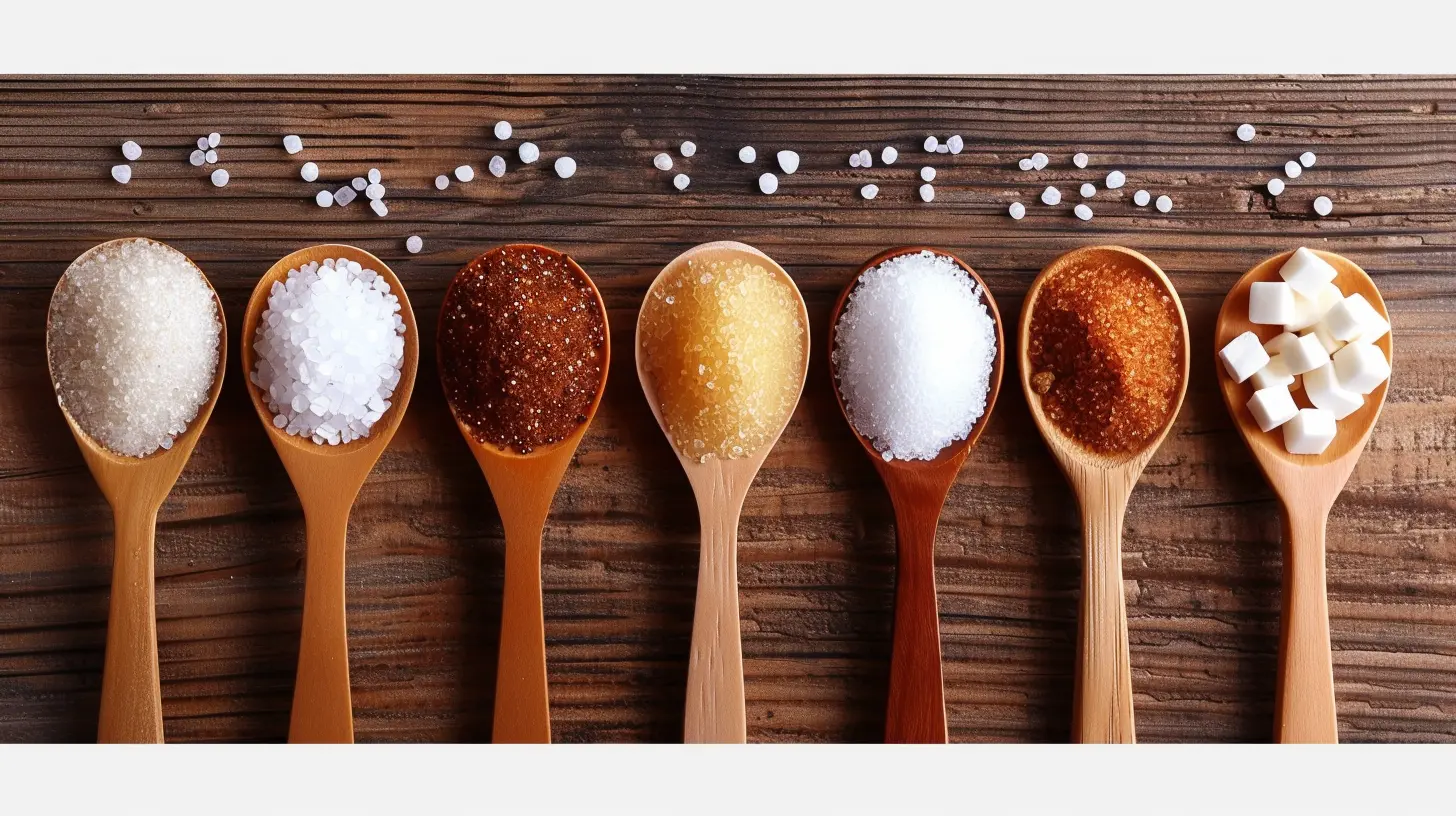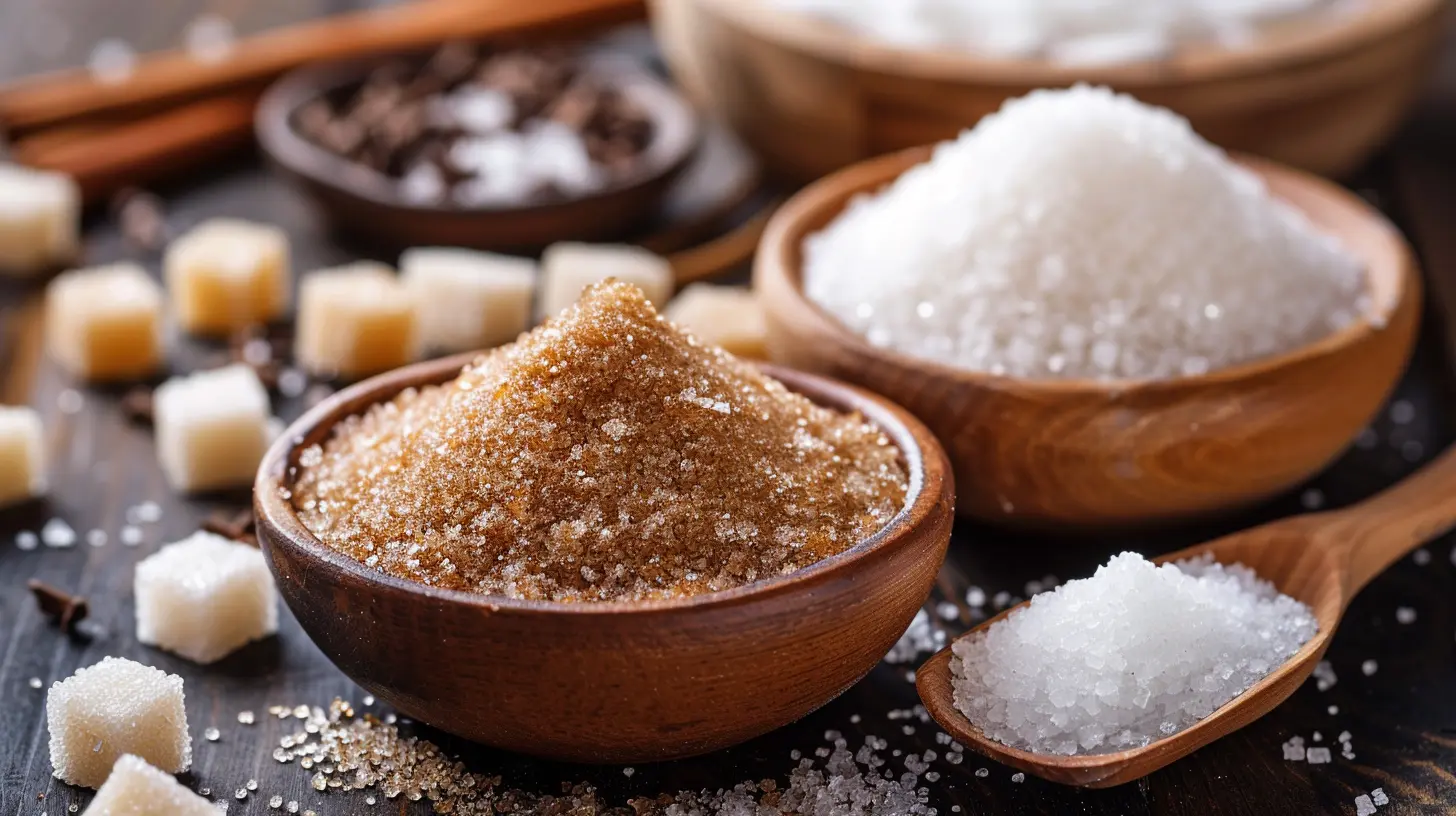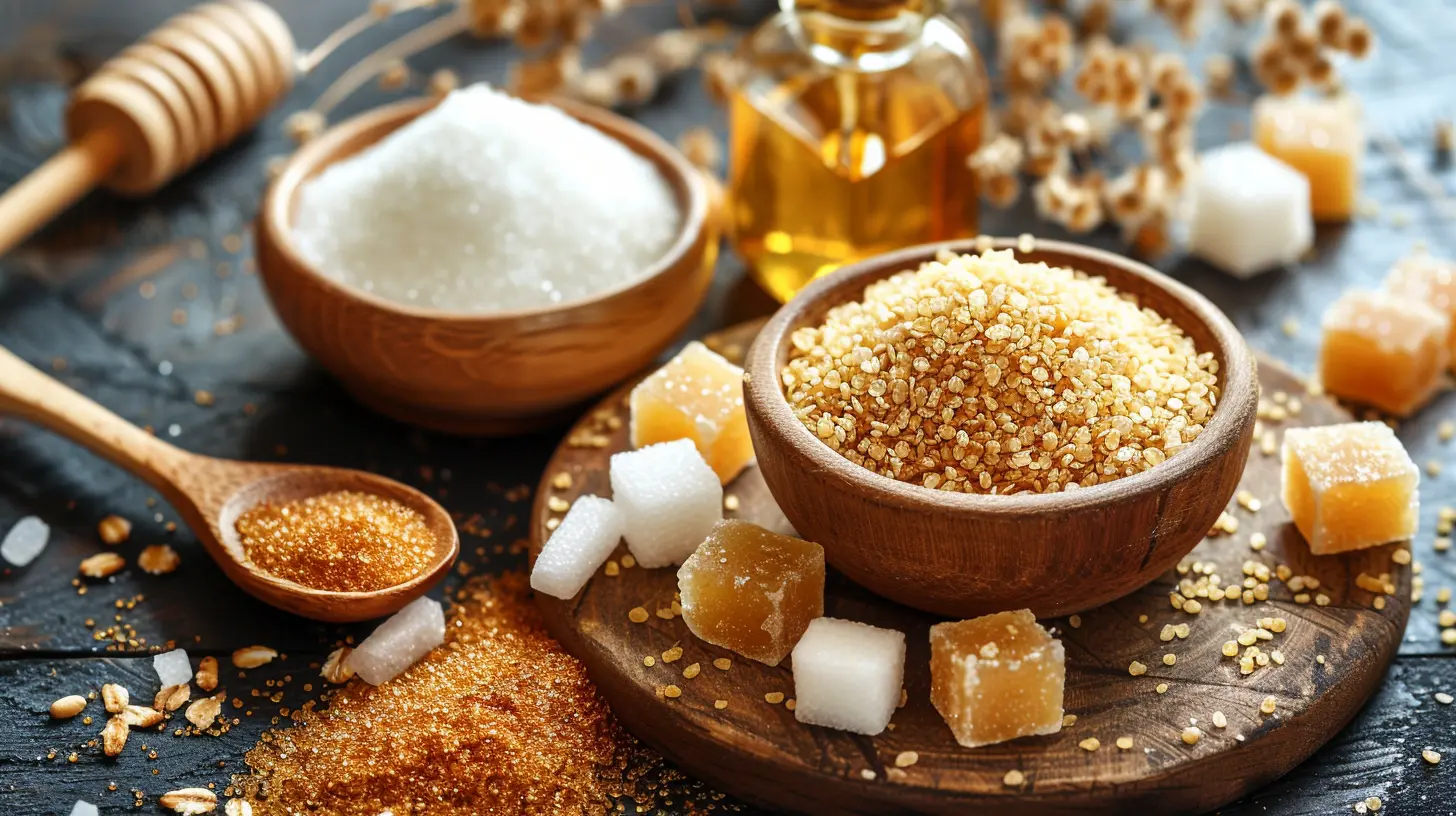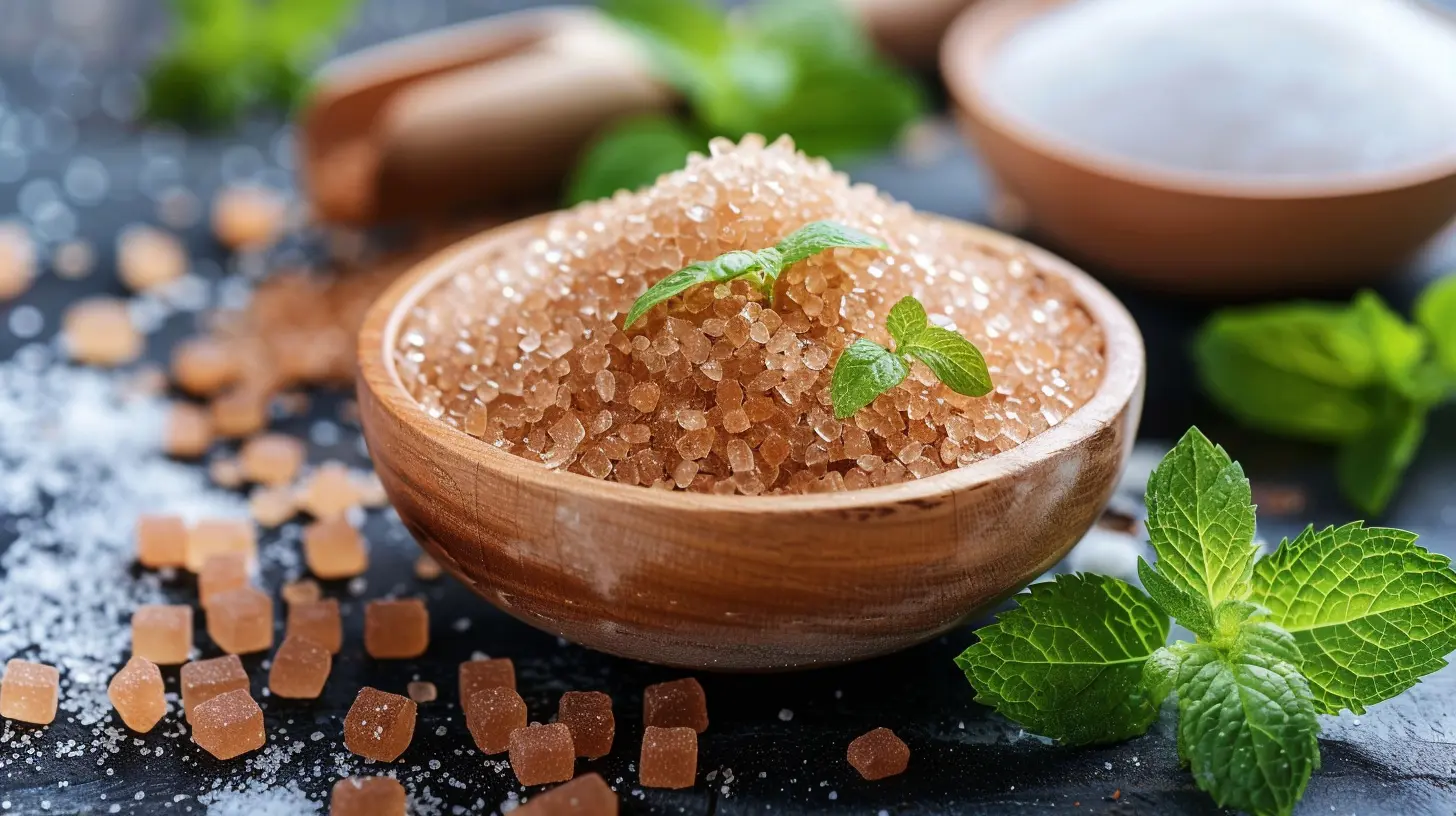Natural Sweeteners vs. Artificial Sweeteners: What’s Best for a Sugar-Free Diet?
11 August 2025
Cutting back on sugar? You’re not alone. With concerns over obesity, diabetes, and overall health, many people are searching for sweet alternatives. But with so many options out there, which one should you choose—natural sweeteners or artificial sweeteners?
Both claim to be better than sugar, but their effects on health can vary. Some promise zero calories, while others boast of added nutrients. So, which is best for a sugar-free diet? Let’s dive in and find out. 
What Are Natural Sweeteners?
Natural sweeteners come from plant or animal sources, making them a closer alternative to sugar than their artificial counterparts. These sweeteners are often minimally processed, retaining some of their natural nutrients.Some well-known natural sweeteners include:
- Honey
- Stevia
- Maple syrup
- Coconut sugar
- Monk fruit
- Agave nectar
Natural sweeteners often contain small amounts of vitamins, minerals, and antioxidants, making them slightly healthier than refined sugar. However, they still contain calories and can impact blood sugar levels. 
What Are Artificial Sweeteners?
Artificial sweeteners are lab-made sugar alternatives designed to provide sweetness without the calories. They are commonly found in diet sodas, sugar-free snacks, and other processed foods.Some popular artificial sweeteners include:
- Aspartame (Equal, NutraSweet)
- Sucralose (Splenda)
- Saccharin (Sweet’N Low)
- Acesulfame potassium (Ace-K)
- Neotame
Artificial sweeteners are often hundreds of times sweeter than sugar. Because they contain little to no calories, they are frequently used in weight loss and diabetic-friendly diets. 
How Do Natural and Artificial Sweeteners Affect Health?
Now that we know what they are, let’s compare their effects on health.1. Impact on Blood Sugar
If you’re managing diabetes or watching your blood sugar, natural and artificial sweeteners affect the body differently.- Natural Sweeteners: Some, like honey and maple syrup, still raise blood sugar levels, though often less than refined sugar. Stevia and monk fruit, however, have minimal influence on blood sugar.
- Artificial Sweeteners: Most artificial sweeteners do not raise blood sugar because they pass through the body without being digested. However, some studies suggest they may alter gut bacteria, potentially increasing insulin resistance over time.
Winner: Artificial sweeteners, if the sole concern is blood sugar spikes. But natural options like stevia and monk fruit can also be safe choices.
2. Weight Management
Many people switch to sugar alternatives to lose weight, but do they help?- Natural Sweeteners: Since they still contain calories, overconsumption can contribute to weight gain. However, they often have a lower glycemic index than sugar.
- Artificial Sweeteners: They’re calorie-free, a major plus for weight loss. But some research suggests they might actually increase cravings for sweet foods, leading to overeating.
Winner: Artificial sweeteners, for calorie control. However, if they trigger cravings, natural options might be better.
3. Gut Health and Digestion
Your gut health plays a huge role in overall wellness, from digestion to immunity.- Natural Sweeteners: Some, like honey, contain prebiotics, which nourish good gut bacteria. However, too much fructose (found in agave nectar and some fruits) can upset digestion.
- Artificial Sweeteners: Some studies show they may negatively affect gut microbiota, potentially leading to metabolic issues or digestive discomfort.
Winner: Natural sweeteners, as long as they’re consumed in moderation.
4. Long-Term Health Risks
Safety is a major concern when it comes to artificial and natural sweeteners.- Natural Sweeteners: Generally considered safe when consumed in moderation. However, overuse of high-fructose options (like agave) may contribute to fatty liver disease.
- Artificial Sweeteners: Some studies link them to potential health risks, such as metabolic syndrome, headaches, and even a higher risk of certain diseases. However, regulatory bodies like the FDA and WHO deem them safe in moderation.
Winner: Natural sweeteners, as they come with fewer long-term risks. 
Which Sweetener Is Best for You?
Choosing between natural and artificial sweeteners depends on your personal health goals.- If you want to reduce blood sugar spikes: Opt for stevia or monk fruit.
- If you’re focused on weight loss: Artificial sweeteners may help, but be mindful of cravings.
- If gut health is a priority: Stick to natural sweeteners like honey or maple syrup in moderation.
- If you’re avoiding chemicals: Go natural for a more wholesome choice.
At the end of the day, moderation is key. No sweetener is perfect, and overconsumption of either type can cause issues. Rather than relying on sugar replacements, try to reduce overall sweetness in your diet—your taste buds will adjust over time!
Final Thoughts
Both natural and artificial sweeteners have their pros and cons. While artificial sweeteners can help with weight management, their potential health risks make natural options a safer choice for long-term use. If your goal is a sugar-free diet, consider natural sweeteners like stevia or monk fruit for a balance between health and sweetness.Remember, the best way to manage sugar intake is to limit all sweeteners—natural or artificial—and focus on whole, unprocessed foods. Your body will thank you!
all images in this post were generated using AI tools
Category:
Sugar FreeAuthor:

Arthur McKeever
Discussion
rate this article
1 comments
Knox Gomez
Balance is key for health!
August 19, 2025 at 2:27 AM

Arthur McKeever
Absolutely! Finding the right balance between natural and artificial sweeteners can contribute significantly to a healthier, sugar-free diet.


